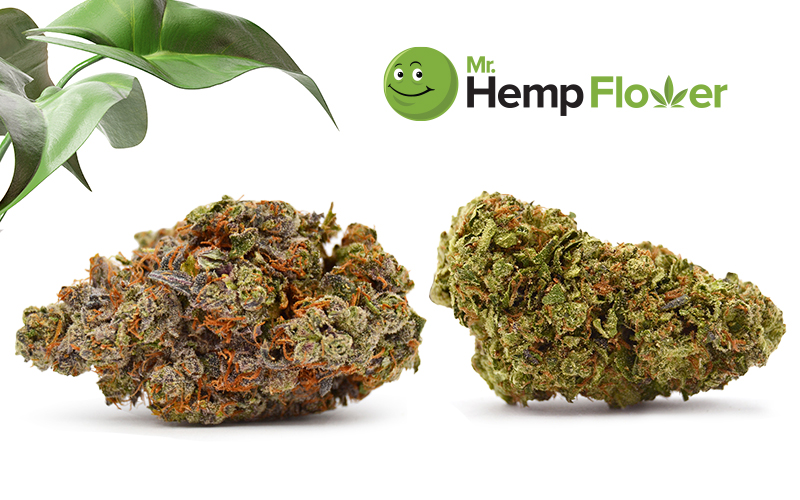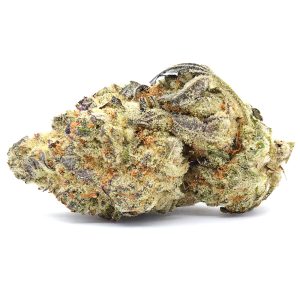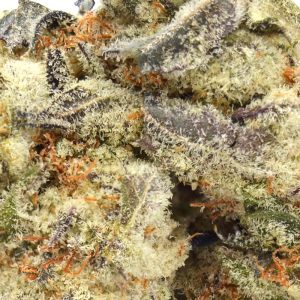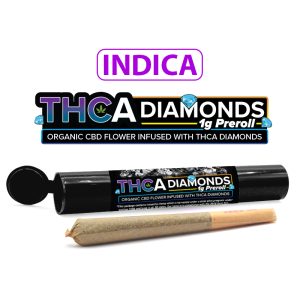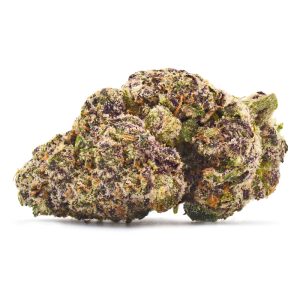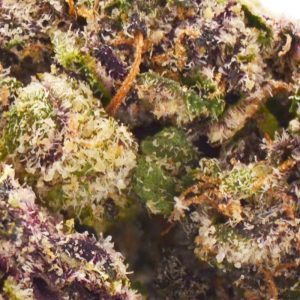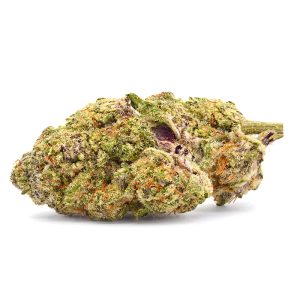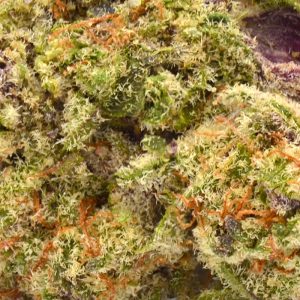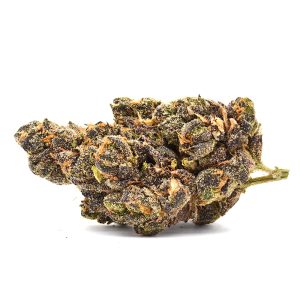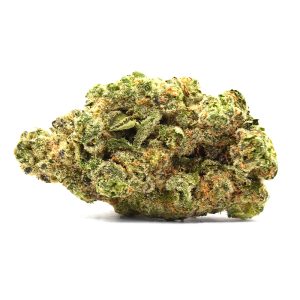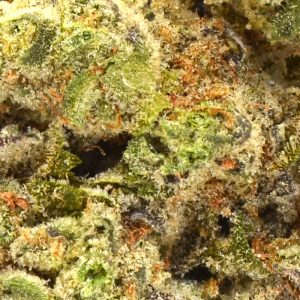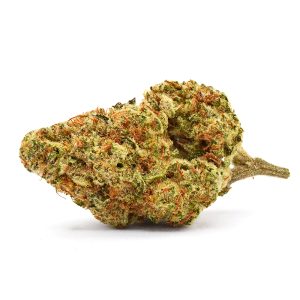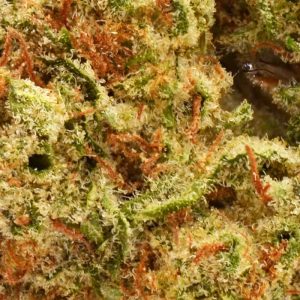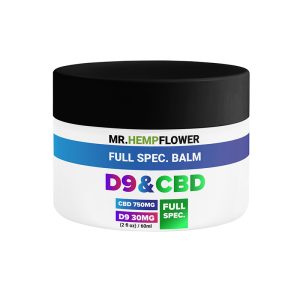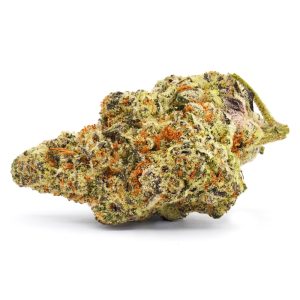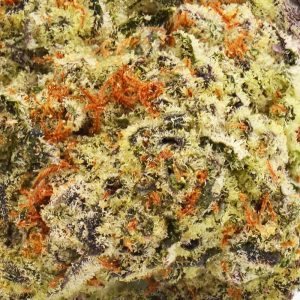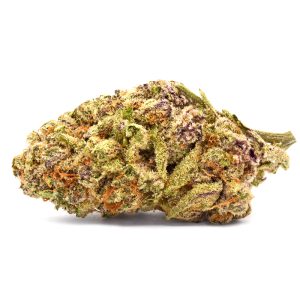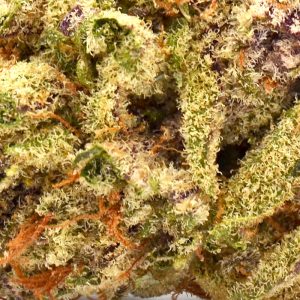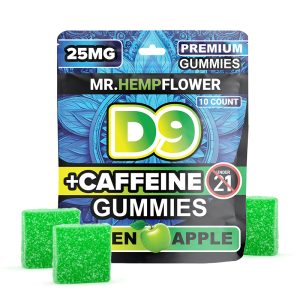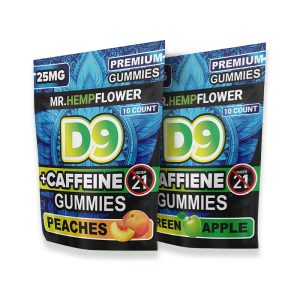Is THCa Natural or Synthetic Like Delta 8 THC?
How is THCa created? Does the hemp plant synthesize it naturally, or is it synthetically derived in the lab? If you are interested in trying high THCa flower or any other THCa product, you are probably wondering how the THCa is formulated.
This article explains everything you need to know about THCa’s origin and how it’s created for various products. Let’s dive in.
Is THCa Natural?
Yes, THCa is a naturally occurring cannabinoid.
The cannabis plant forms THCa without any human intervention.
Some plant breeders have found ways to increase the THCa levels in a cannabis strain compared to what natural varieties offer.
Regardless, it’s a scientific fact that this cannabinoid is one of the main compounds of the cannabis plant — and a precursor of delta 9 THC.
In the cannabis plant, THCa is biosynthesized from cannabigerolic acid (CBGa) in the early stages of growth. Biosynthesis is the natural generation of cannabinoids (or any other compound) through successive enzymatic reactions by a number of enzymes in the plant.
THCa accumulates in the granular trichomes of the cannabis flowers and leaves. It represents up to 90% of the total THC content. THCa biosynthesis induces necrosis (cellular death) within the plant. The process of necrosis is vital for keeping the plant healthy by removing damaged, dead, or dying cells.
This is how it all goes down in the cannabis plant [1]:
- The cannabis plant synthesizes olivetolic acid — the cannabinoid precursor — through enzymatic reactions.
- A series of steps involving more enzymes create cannabigerolic acid (CBGa) or the “mother of all cannabinoids”.
- The plant converts CBGa to tetrahydrocannabinolic acid (THCa) or cannabidiolic acid (CBDa). Traditionally, marijuana contains higher levels of THCa, while hemp has higher levels of CBDa.
- When you apply heat to THCa, it transforms into THC. The process is known as decarboxylation and causes the THCa to lose the acidic carboxyl group and convert to the active cannabinoid THC.
THCa has no cannabimimetic effects — it’s considered a biologically inactive cannabinoid because it doesn’t produce intoxicating effects.
As a molecule, THCa doesn’t fit into the cannabinoid receptors that cause psychoactivity. Luckily, it has many other therapeutic properties, including anti-inflammatory and immunomodulating effects [2, 3].
Decarboxylation of THCa
The decarboxylation of THCa is a chemical reaction that happens when you heat THCa or expose it to direct heat through smoking or vaporizing.
There’s also the possibility for a slow decarboxylation from THCa to THC during storage and fermentation. When the cannabis flower is exposed to room temperature, oxygen, and light for a prolonged period of time, the already decarbed THC turns into cannabinol (CBN).
The decarboxylation of THCa is partial, so both THC and THCa can be found in the oral fluid, serum, and urine of cannabis consumers [1].
Delta 8 THC vs. THCa
Delta 8 THC occurs naturally in the hemp plant and is a by-product of delta 9 THC degradation. So in a way, THCa is the precursor of delta 8 THC as well.
But because it occurs in minuscule amounts, the natural extraction of delta 8 THC is limited. To create delta 8 THC in larger quantities, manufacturers chemically convert cannabidiol (CBD) or hemp-derived delta 9 THC into delta 8 THC through isomerization.
The main difference between these two cannabinoids is that THCa is a non psychoactive compound. Delta 8 THC is a psychoactive substance that’s around 50% less potent than delta 9 THC. Delta 8 gives the user a very comfortable, happy, and calm experience because it’s milder than delta 9 THC.
What Is High THCa Hemp Flower?
High THCa hemp flower is a legal high THC product or an alternative to marijuana flower.
Marijuana plants naturally contain higher levels of THCa, while the hemp plant has higher levels of CBDa.
But, growers have found ways to create hemp plants that yield high levels of THCa and keep them from converting into delta 9 THC pre-harvest. THCa flower classifies as hemp flower because it contains low levels of delta 9 THC (below 0.3%).
So it’s important to double-check every vendor when buying THCa flower.
Some companies dare to sell you marijuana flower disguised as high THCa hemp flower. Others may spray the hemp flower with THCa distillate, which is nowhere near the same experience that naturally grown THCa flower can give you.
So make sure to check third-party labs for each hemp flower strain you buy — and double check the date and delta 9 THC levels to make sure the flower is hemp.
Have You Tried Our High THCa Flower Yet?
Our newest collection of hemp flower strains includes premium high THCa hemp flower.
We collaborate with master growers who cultivate the hemp flower under special conditions, so it produces high amounts of THCa and low amounts of delta 9 THC. Because of this cannabinoid ratio, the hemp flower strains are classified as hemp and are legal under the 2018 Farm Bill.
If you want to enjoy THCa flower, we recommend you start with the best THCa flower strains, including:
- Gary Payton THCa hemp flower — Coming in at 29% total THC, this high-potency hybrid is for the brave ones who want to enjoy a nice balance between mood-boosting sativa effects and sedating indica effects.
- Pineapple OG THCa hemp flower — A supreme bud with 24% total THC potency, Pineapple OG is a sativa-dominant hybrid that will give you a decent body sensation, so avoid smoking it before noon.
- Trufflez THCa hemp flower — A hydroponic indoor grow, this hemp flower comes in at 21.10% total potency and offers the richest flavor profile — a blend of warm butter, coffee, caramel, and actual truffles.
We partner with USA-licensed hemp growers who know each strain from seed to sale. But, the flower still undergoes rounds of tests by third-party labs. We provide a Certificate of Analysis for each high THCa flower we offer on our website showing the total concentration of cannabinoids and terpenes.
FAQs on Is THCa Natural
Does THCa Get You High?
Yes, THCa gets you high after being heated.
After the hemp flower has been harvested, it undergoes the process of drying and curing, where some of the THCa breaks into delta 9 THC. Naturally, THCa is a non psychoactive cannabinoid found in raw cannabis plants.
When smoking or vaporizing THCa flower or concentrates, 75% of the THCa breaks down and converts to delta 9 THC. The THCa content on the product label is the concentration of THC you will receive after the flower has been decarbed or exposed to heat.
What Dosage of THCa Will Work For Me?
If you are hesitant about how much THCa to take, follow the golden rule of starting with the lowest dose possible.
Let’s say you’ve bought our high THCa flower Pineapple OG that contains 24% THCa. If you are an absolute beginner who wants to use this hemp flower strain, take one puff and wait five minutes. When the effects start to kick in, notice how they make you feel.
- Beginners may feel the psychoactive effects of THC at a low range of 1 mg to 2.5 mg.
- Moderate users may need up to 10 mg of THC to feel a psychoactive experience, while seasoned users may get high at 15 mg of THC and over.
Typically, between one and two puffs daily are an effective and sufficient dosage for beginners, while five puffs can be enough for moderate users. Seasoned users usually smoke an entire THCa hemp flower pre-roll and, depending on tolerance, supplement additionally with tinctures or topicals.
If you want to avoid getting high but improve symptoms, take puffs until the symptoms start improving, but with breaks in between. Remember that the absorption of THC through smoking is between 2% and 56%, so not all of the THCa will be absorbed by your system [4].
Is THCa Legal?
The legal status of THCa is subject to heated debates by industry lawyers and experts.
As a compound, THCa is not explicitly banned at the federal level in the United States. However, its possession and sales may be prosecuted under the Federal Analogue Act, thanks to this cannabinoid being an analogue of delta 9 THC.
There’s also the possibility of THCa hemp flower being prohibited in some states because their laws require testing hemp material for total THC. Because high THCa products are the same as marijuana, they are likely legal in states that have legalized marijuana for medical and recreational uses.
Does THCa Show up on a Drug Test?
Yes, THCa shows up on a drug test.
The simple explanation behind this answer is that, when smoked or vaporized, THCa converts into delta 9 THC. Most standard drug tests search for THC metabolites, which will definitely show up if you consume THCa hemp flower.

